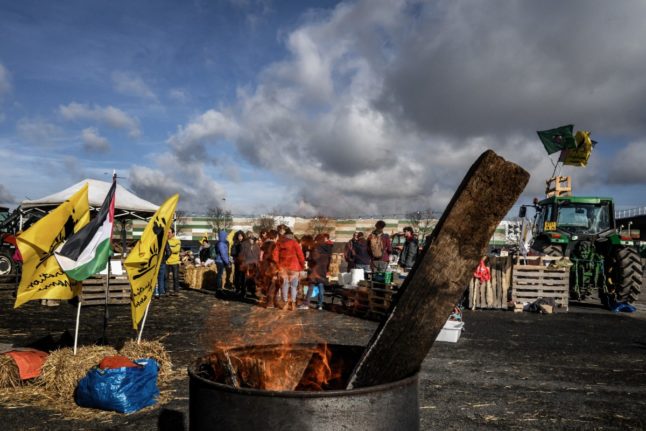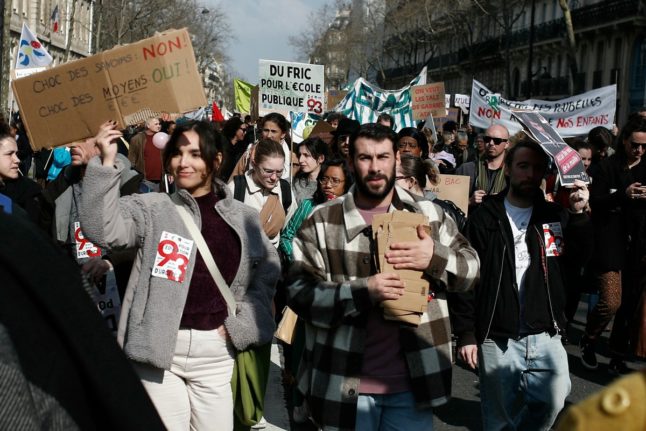In some of the fiercest among the EU-wide protests, French farmers had been out in force for more than a week, using tractors to block key roads into Paris and other major highways nationwide.
Farmers’ numerous complaints range from burdensome environmental rules to cheap imports of produce from countries outside the EU, including Ukraine. But their focus was on the challenge of making ends meet in the sector.
On Thursday, two of France’s main farming unions announced a suspension of the protest, urging demonstrators to take their tractors off the streets. Prime Minister Gabriel Attal had earlier promised cash, an easing of regulations and protection against unfair competition.
Agriculture Minister Marc Fesneau said Friday that the worst of the crisis was “pretty much behind us”.
“But the issues that we have to deal with and that have emerged in this crisis are still ahead of us,” he told CNews television.
Authorities said Thursday evening that many roadblocks across the country were being lifted or eased and farmers continued to move tractors off the streets on Friday, even though some blockades remained in place. In a number of other European countries including Italy, Spain and Greece farmers said protests would continue.
In Spain, three main farming unions said Friday they would continue to mobilise after a meeting with the agriculture minister, who pledged to “work” to address the crisis.
In Italy, farmers drove a convoy of tractors through the Sicilian town of Ragusa and protesters also blocked the port of Cagliari, on the neighbouring island of Sardinia. Activists called farmers to also converge on Rome, and a protest was set to take place on Saturday north of the capital.
On Thursday, thousands of protesters from Europe had gathered in Brussels, clogging the streets with 1,300 tractors.
‘Strong mobilisation’
Laurent Saint-Affre of the FDSEA union in France’s southern Aveyron department hailed “a historic, tough, strong mobilisation”. He warned farmers could take their tractors out on the streets again “in a few days” over remaining sticking points.
Speaking to RTL, Arnaud Gaillot, head of the Young Farmers (JA) union, pointed to a sense of “fatigue” after days of protests and a “desire to put things on hold.”
In the Yvelines department, west of Paris, the number of vehicles involved in a blockade had fallen from around twenty to seven tractors on Friday morning, police said.
The roadblocks on the A4 and A5 motorways in Seine-et-Marne east of the French capital had also been lifted.
A police source told AFP however that some protesters wanted to stay put until Saturday, while several “isolated groups” sought to remain in place until France’s huge Salon de l’Agriculture trade fair that opens on February 24.
Around ten tractors and around forty protesters were still blocking a tollgate in Saint-Quentin Fallavier in southeastern France, an AFP correspondent saw.
“We haven’t got what we’re fighting for,” said farmer Isabelle Douillon, referring to better pay.
A new roadblock was also set up on Friday morning at a tollgate near the city of Saint-Quentin in northern France, according to one activist, Bruno Cardot, who called the action the farmers’ “last stand.”
‘Fundamental question’
The FNSEA, France’s biggest rural union, wants to see the first government measures implemented by the start of the trade fair and a law passed by June, its head Arnaud Rousseau said on BFMTV.
Another major union, the Farmers’ Confederation (Confederation Paysanne), said it would remain mobilised because “the fundamental question of income” was “still not being tackled head-on by the government”.
French President Emmanuel Macron said after talks in Brussels Thursday with European Commission chief Ursula von der Leyen that France had managed to
persuade the EU to “impose stricter rules” for cereal and poultry imports, including from war-torn Ukraine.
In a key announcement designed to break the deadlock, the government announced Thursday France would pause its Ecophyto programme aimed at reducing the use of pesticides in farming.
Environmental groups slammed the move but government spokeswoman Prisca Thevenot sought to defend the decision, saying environmental policies should be based “on concrete realities”.



 Please whitelist us to continue reading.
Please whitelist us to continue reading.
Member comments